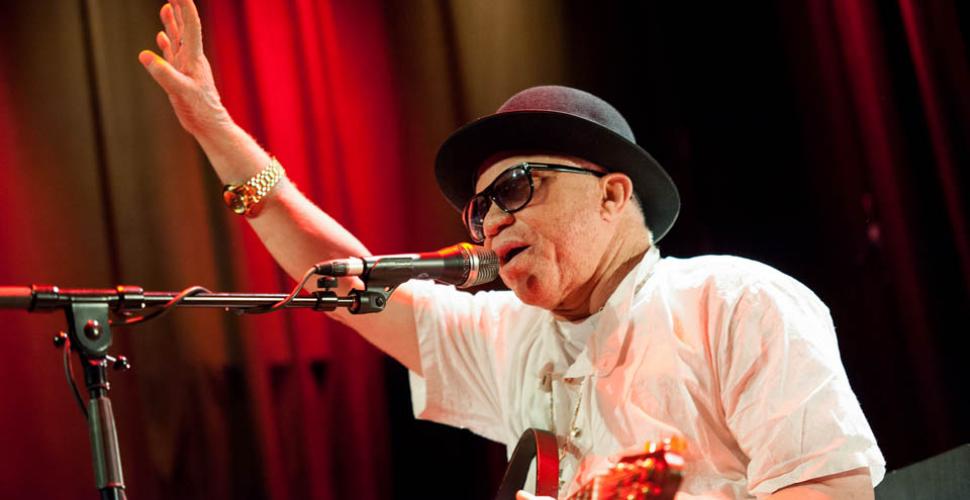Les mer
- Artikkel
- Artikkel
- Intervju

By Elisteinar Tenga
- Having been an 'outsider' in many ways throughout life, would you reflect on your music as 'music for the outsiders' and if/if not in what way has this materialized through time?
- First of all; as a Keita, descendant of an emperor, I was not supposed to be a musician or a singer. But I couldn't finish my studies and become a teacher as I wanted, because my eyesight was very bad, due to albinism. He continues:
- Being a teacher was my dream and when I had to accept that I couldn't I went through a very hard time. I was spending much time in my family's field and in addition to field work I also had to scream to chase birds away. That's how I began to develop my voice. Then I left my village, arrived in Bamako, and began my journey as a singer and musician.
- How has that been?
- It has been very hard, music and showbiz milieu is a jungle. Then had to face my family, they were opposed to my choice of being an artist, and of course I faced all the prejudices related to the fact that I was an albino. But I put up with all this, I worked hard and advanced. All these difficulties contributed in what I am today, it’s part of me and it's expressed in my music and lyrics of many of my songs.
- Seeing the surging popularity of African music (artists like Burna Boy and genres like Amapiano), do you see any similarities between this 'wave of interest' in African music from the west to when you had your breakthrough?
- Since the 80s many genres of music from Africa and African artists began to be very popular in the Occident. We were invited in all festival, playing in big and mythical venues and were selling millions of albums. Keita goes on:
- Today artists and genres coming from anglophone countries are more popular and the ways that this popularity arrives, is maintained and grows up is a bit different from our time. Today they have social media and sell great part of their work on digital platforms.
- Each period has its realities.
- As such African music is often distilled down to generalizations and trends. What is your view of how the west treats African music and musicians? And how has this impacted yourself?
- Yes here in Ocident our music is always generalised, all genres assimilated to only one, called African music or Music of the world. This is pejorative. In Africa we have hundreds of musical genres and they all have their sounds, instruments, melodies and particularities.
- Any young artists that you are listening to that you would like to shed a light on?
- Not a lot I have to recognize. But my two backing vocals Bah and Bella are singers and they have several compositions that are worth it. I know and like some songs from Yemi Alade who is with me in featuring on one song from my last album. I also listen few young artists from Guinea. There is also a rapper from Mali, called Master Soumi who have many songs with good lyrics talking about realities (good or bad) that our society and the world faces.